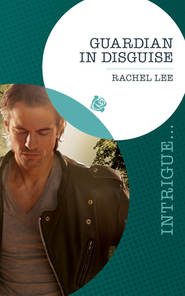По всем вопросам обращайтесь на: info@litportal.ru
(©) 2003-2025.
✖
Shadows of Destiny
Автор
Год написания книги
2019
Настройки чтения
Размер шрифта
Высота строк
Поля
She reached out and touched the cool, rainbow-hued stone of the temple wall. “I wish Anahar could sing for them, calling them as she called the Anari….” Her voice trailed off as a thought struck her.
“The stones!” Cilla and Sara said on a single breath.
“Aye!” Eagerly, Tess drew forth the leather pouch she wore always around her neck. Walking to the center of the room, she spilled the stones upon the floor. “We know two of them have fallen under the Enemy’s sway.”
“These,” Sara said. She pointed as she watched two of them roll apart from the others and begin to make their ways across the floor, toward two of the statues. One of the stones was beryl, the other yellow quartz.
The three of them stared dubiously at the remaining nine stones. Cilla reached out, removing the opal, which was Tess’s, the sapphire which was Sara’s, and the emerald which was her own. That left amethyst, ruby, carnelian, topaz, garnet, jade and turquoise. Those, too, then began to roll across the floor, drawn by an unseen force.
“Should we do this?” Sara asked, her voice hushed. “We don’t know how many may belong to Ardred.”
“Nor do we want Ardred to know we are summoning them,” Tess pointed out. “Although I am not certain we can avoid it. He has Ilduin serving him.”
“And we know at least two of them,” Cilla said, pointing to the two stones that had begun to roll toward their statues before turning away from them and coming to rest near each other. The other stones had seemingly scattered themselves around the room.
Cilla continued, “Even so, Ardred’s Ilduin will know we are doing something. How can they not? We seem to be joined tightly to one another, all twelve, in some way.”
“And those who have no notion that they are Ilduin might not even understand the contact,” Sara said.
Tess had fallen silent as she stared at the stones. For a time, no sound passed among the women. “There is a riddle here,” she said finally. She placed her stone onto the floor. “Place down your stones, sisters.”
The three stones rolled across the floor, coming to rest in a tight cluster, apart from the others.
Tess’s brow furrowed. “It is as if they mimic where we are in the world. Almost as if they form a map.”
Tess found her mind drifting back to a time before she inhabited this world, to lessons she had studied. How to find her way across a landscape with the barest of tools. She could not pull the whole of the memory into focus, and yet she knew that it would help her resolve this mystery.
“If they are a map, there are no landmarks,” Sara said, looking at the floor. She pointed to the cluster of their three stones. “We know we are there, but where is that in relation to anywhere else?”
“We need to know where Ardred is,” Tess said. “That will give us an orientation, and perhaps even a scale.”
Cilla looked at her strangely. “You speak of things I do not know, sister.”
“And I hardly remember them myself,” Tess said. “It angers me that my own past must bear on our journey, and yet most of it lies behind a veil, unknown to me.”
“But not all,” Sara said. “You spoke of, what was it, orientation and scale. What are they?”
Tess closed her eyes for a moment, hoping that perhaps this past would emerge fully formed, and yet it remained clouded in impenetrable mist. Still, she had spoken the words, and she knew their meaning.
“A map must give us direction and distance,” she said. “If we know the orientation of a map, we know which way to walk to reach a destination. If we know the scale of a map, we know how many days it will take to get there.”
Tess pointed to the three stones that represented them and then to a looser cluster of four others. “If the stones are indeed a map, four of our sisters live near one another, there. But we don’t know what direction to walk in order to reach them, nor how far away they might be.”
“You said that if we knew where Ardred is, we could know this,” Cilla said, pointing to the beryl and quartz stones. “You think those two will be with him?”
“I would be surprised if they were not,” Tess said. “He relies on the power of the Ilduin. He must keep them near at hand, lest he find himself caught without them.”
“But surely he cannot control the whole of his forces with only two Ilduin,” Sara said.
“No,” Tess agreed. “He cannot. Glassidor’s hive was small by comparison to the Enemy’s. The Enemy would reach to his other Ilduin through the two he keeps at hand.”
The three women stared down at the scattered stones, trying to find some clue that would give them direction. Presently, Tess began to walk around them, viewing them from all directions, seeking any hint they might give her. Hoping the arrangement would speak to her on some level.
“All we need,” she said slowly, “is one other point of reference. If we knew where just one of these Ilduin was located, other than ourselves, the map would become clear.”
Cilla pointed. “These four that are near one another. Surely they must be in a large city? Bozandar, perhaps?”
Sara answered. “Mayhap. Or mayhap they have been drawn together by him whom we fight.”
“Aye, that concerns me,” said Tess slowly. “But they may also have come together as we have, finding one another by chance as they seek to fight the Evil One.”
“Even so,” Cilla said, “they must be from different bloodlines, as we are. Four such women, together in one place, speaks of a city where people gather from all over. Surely Bozandar is such a city.”
“I agree,” Tess said. “It is likely that they are in and around Bozandar. But we must assume that at least one of them is in the Enemy’s thrall. He could not master the Bozandari otherwise.”
“Aye,” Sara said. “And perhaps all four.”
Tess nodded. “We must proceed with caution, then. But has this not been our watchword since we began this journey?”
“I would never approach Bozandar otherwise,” Cilla said. “But I see no choice.”
Tess nodded, her face drawn. I see no choice. That had been her life for too long.
Chapter Seven
Tuzza was surprised, both at the progress that had been made in constructing his army’s camp and in the men who had risen to the forefront in the process. Some were experienced officers who had shown themselves willing to follow Tuzza’s lead in stepping in to share the manual labor, and in reaching out to the Anari for help. But some were men he would never have known by name, but for their exceptional performance in this exercise.
One such man stood before him now. Denza Grundan was a mere filemark, serving his second term of conscription. By all accounts, Grundan was a capable and brave soldier, well skilled and respected by the men of his file. He was also one-quarter Anari.
Given his heritage, and it was apparent from his deep, burnished brown features, his accomplishments shone even brighter.
Even Grundan’s rearmark had stepped out of the way over the last week, content to let Grundan organize the accommodations for not only his own file, but the entire company. What at first had seemed like sensible leadership had become something else when Tuzza had asked after the rearmark, and after some searching had found him drunk in his tent. That, combined with the rearmark’s reputation among his men and his fellow junior officers, had made Tuzza’s present decision an easy one. If Tuzza was to rebuild his command, this was an ideal way to begin.
Tuzza stood and spoke with a voice that would have rung through the company camp, even if the company had not been formed in ranks before him. “Filemark Denza Grundan, you have excelled in your duties, demonstrating not only strength of mind and will but also humility and attention to the needs of your men in the highest tradition of the Bozandari legions. Your character and commitment are above reproach. It is for this reason that I now appoint you a Rearmark, an officer in this legion from this time forward. Will you kneel and accept the oath of commissioning?”
“Aye, my lord,” Grundan said, kneeling and presenting his sword to Tuzza.
Had this ceremony occurred in other times, Tuzza would have asked Grundan to swear fealty to the emperor. In the present circumstances, Tuzza had rewritten the oath of commissioning.
“Do you swear by your life to serve these your men with your full measure of loyalty and honor, to obey all lawful commands of your seniors, to devote your whole mind and strength to your duties, and to respect and bear upon yourself the proud history and traditions of the Bozandari legionnaires and our Anari brethren?”
“Aye, my lord,” Grundan said, “upon my honor and my life itself, I swear myself thus.”
Tuzza smiled. “Then stand, Rearmark Grundan, and receive your company.”
Grundan stood and pivoted smartly, sheathing his sword and holding out his hands to receive the company’s battle standard. It was not the spotless pennant that had been carried out of Bozandar months ago. It was like Tuzza’s legion, tattered and soiled by the campaign, save for the radiant image of the white wolf, which had been stitched into the pennant by one of the men. Tuzza felt tears in his eyes. This company standard reflected the trials these men had borne, their defeat, and their hope of redemption under their new allegiance to the Weaver.
As Grundan grasped the staff that bore the standard and lifted it above his head, the men erupted in a cheer. In another time, in another legion, it would have been no more than a formality, a change-of-command ceremony, little noticed and less remembered. At this time, in this legion, it was so much more. It was the start of a new tradition, a beacon of hope to those with the talent and commitment to serve with honor, and a warning to those who thought their status guaranteed by patronage.











